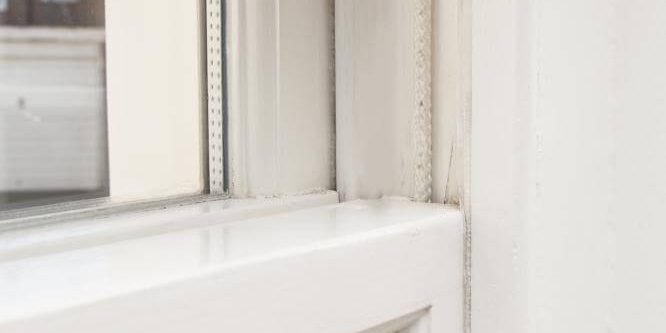According to analysts, the development of airport capacity in London is vital in one form or another in order to connect and trade with the world’s emerging markets; the so-called BRIC countries – Brazil, Russia, India and China. Many claim that the combination of an incoherent political strategy and the strength of expanding competitors in Europe and the Middle East is leading to the UK’s competitive position being seriously eroded.
Expansion essential but eschewed
The voices in favour of expansion are growing louder. Boris Johnson has recently pointed to the fact that China is building 52 new runways in the next nine years, while Britain planned none at all.
In addition, the CBI has claimed that just one daily flight to key emerging markets could boost trade by £1bn per year. Despite this, the issue has been kicked into the long grass by the Coalition government. A commission has been set up to make recommendations – after the 2015 general election. In the meantime, and much like the rest of London’s infrastructure system, capacity is becoming stretched.
Operational Freedoms – no choice but more noise
In the absence of increased capacity, Heathrow airport has carried out a trial named Operational Freedoms to allow ‘more flexible use of runways.’ Usually, aircraft arriving in Heathrow’s airspace earlier than expected and not scheduled to land until after 6am must wait in airspace. This is done to reduce the noise impact on local residents from flights arriving between 4:30am and 6am; on average only 15 aircraft are allowed to land in this period. However, the trial means that more flights can arrive earlier to make Heathrow’s schedule more flexible. The impact on residents in West and South West London has been significant. According to the BAA’s own statistics, the number of complaints about aircraft noise over West London increased by 900% between June 2012 and August 2012. Although the trial ends in March 2013 the noise looks set to stay, for two reasons.
Firstly, and in the short term, the southerly runway will be shut at night until October 2013 to allow resurfacing. This means that for the next eight months, night flights will be routed exclusively over the westerly runway, encompassing Hammersmith and Fulham. Flights that use this runway travel over Dulwich, Brixton and pass Battersea, Fulham and Putney before arriving at Heathrow.
Secondly, and in the longer term, without a decisive plan on London’s airport strategy, alternatives such as Heathrow’s Operational Freedoms trial will become a greater reality.
- Combat noise and improve property value
- Clearly, political dithering is adversely affecting the man on the street. But what can be done to avoid the noise? One option would be to wait until after the next general election in 2015 for a satisfactory resolution. However, placing your faith in politicians is similar to leaving biscuits in the tin and expecting leftovers. Someone should have been kind enough to think of you but every last greedy bugger double-crossed you!
- Another, more pragmatic choice would be to replace your old, worn and shabby single glazed windows with new, modern, double glazed acoustic glass.
- Acoustic glass contains two sheets of glass held together with a polyvinal butyral (PVB) layer. This means that a 6.4mm unit is effectively comprised of two sheets of 3mm clear glass with a 0.4mm PVB layer holding them together.
In order to achieve double glazed acoustic glass, a 6mm Argon gas filled spacer bar is inserted between two sheets of 6.4mm acoustic glass, making the complete unit size 18.8mm. Overall this double glazed unit contains; four sheets of 3mm glass, two 0.4mm PVB layers and a 6mm spacer bar.
The first advantage of using double glazed acoustic glass is that noise disruption is reduced. In the UK, the government has found that people become significantly annoyed by aircraft noise at 57 Decibel Levels (dB). Furthermore, living on busy streets in central London will only increase this noise level further.
It is estimated that acoustic glass reduces the sound impact by 1dB per mm thickness. Therefore, in a 18.8mm unit containing 12mm of acoustic glass there is a reduction of around 12dB. This means that those suffering from aircraft noise would hear the impact reduced by at least 21%. In addition to this the PVB layers and spacer bar will further improve tranquility.
Another benefit of using this feature in sash windows is that this glass would be almost impossible to break through. This improves the safety and security of homes. The PVB layer keeps the glass bonded even when broken, and its high strength prevents the glass from breaking up into large sharp pieces.
Installing acoustic glass that is double glazed also boosts thermal efficiency. This will lead to smaller energy bills, reduced condensation and a lower carbon footprint.
Crucially, this feature is a fantastic selling point for homebuyers. It would be difficult to imagine someone who would not be impressed to discover that the traditional sash windows of the property they are considering contain double glazed acoustic glass.
Wandsworth Sash Windows
Despite the obvious benefits of double glazed acoustic glass, many people are wary of the price associated with this work. All the windows that Wandsworth Sash Windows produces and installs are custom made exactly to the client’s specifications. Some of our customers choose to have double glazed acoustic glass installed in their ground floor sash windows and normal double glazed sashes fitted in the remainder of their house. This means that the ground floor windows profit from extra security and noise proofing, whilst the whole house has the maximum possible thermal rating.
If you are interested in finding out more about the benefits of acoustic glass, please call us on 02079247303
Alternatively, you can visit our showrooms at 125 Lavender Hill, London SW11 5QJ, or 355 Brockley Road, London SE4 2AG which are open from 7.30am until 4.00pm from Monday until Friday.

